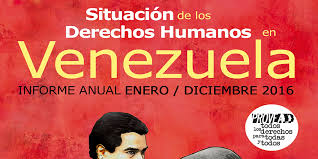How Venezuela’s regime plans to win this year’s legislative election https://t.co/degpOUTWW1
— Democracy Digest (@demdigest) June 25, 2020
Under the cover of COVID-19 and with little public backlash, Venezuela’s President Nicolás Maduro has taken a series of steps to further weaken his opposition ahead of parliamentary elections scheduled for later this year. On June 12, the administration-controlled Supreme Court appointed five members to the board of Venezuela’s National Electoral Council, the public organization tasked with administering, organizing and carrying out elections Among the group were not only longtime Maduro loyalists, but also dissident members of the opposition, Félix Seijas Rodríguez writes for Americas Quarterly.
Opposition leader Juan Guaidó and his allies must now decide how to react to fraud in the legislative election, The Economist observes:
Some factions of the opposition may participate to guarantee their political futures, as some did in the presidential election in 2018. That would confuse opposition supporters and give Mr Maduro a chance to claim the vote is fair. “Such dynamics will all but guarantee that the opposition loses control of the National Assembly,” says Eurasia Group, a consultancy. Opposition legislators who are not re-elected would lose immunity from prosecution, points out Crisis Group, a think-tank. That would force them into exile. If Mr Guaidó no longer leads the legislature, his foreign allies will also have to have a rethink.
 Despite it all, Maduro has been able to navigate his way through the storm, with help from allies such as Cuba (in domestic intelligence activities), and Russia, China and Iran, whose minimal financial support has been enough to keep afloat a government that has conditioned its population to get by on very little, Seijas Rodríguez adds. Maduro can thus act without any real threat of losing control. On the international stage, the possibility of a foreign intervention was never credible enough for the regime to change its behavior.
Despite it all, Maduro has been able to navigate his way through the storm, with help from allies such as Cuba (in domestic intelligence activities), and Russia, China and Iran, whose minimal financial support has been enough to keep afloat a government that has conditioned its population to get by on very little, Seijas Rodríguez adds. Maduro can thus act without any real threat of losing control. On the international stage, the possibility of a foreign intervention was never credible enough for the regime to change its behavior.
In recognition of the International Day in Support of Victims of Torture on June 26th, the Raoul Wallenberg Centre for Human Rights will be co-hosting with the Casla Institute a conference on Crimes Against Humanity in Venezuela. Renowned experts and leading human rights voices will discuss justice and accountability for victims of torture in Venezuela, and the prevention of ongoing crimes against humanity by the Maduro regime.

The webinar will be taking place on June 26 at 3:00 PM EDT
Discussants will include RWCHR Chair Hon. Professor Irwin Cotler; RWCHR Senior Fellow and Casla Institute President Tamara Suju; former President of the United Nations Security Council and Venezuelan Ambassador to the UN Diego Arria; former Venezuelan ambassador to the UN Commission on Human Rights Victor Rodriguez; and former Member of the European Parliament Beatriz Becerra.
The event can be viewed on the Casla Institute Youtube, to do so: Click Here
Please note that many panelists will be speaking exclusively in Spanish.







